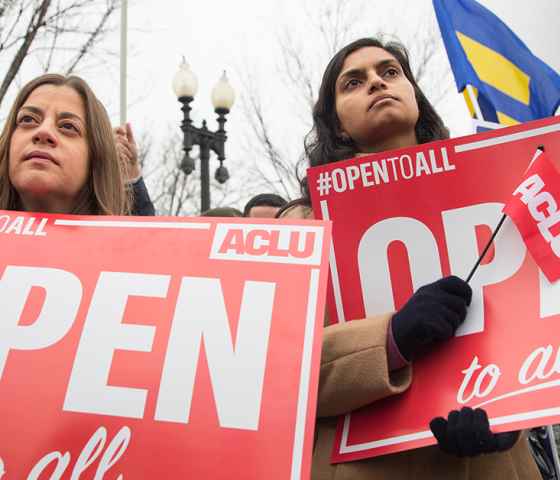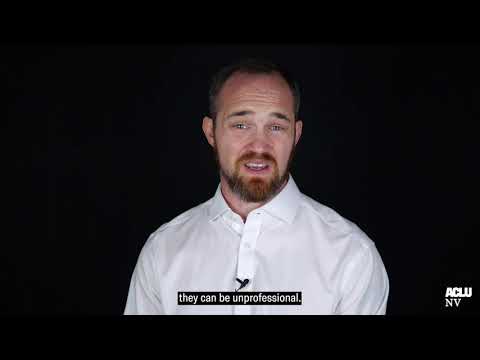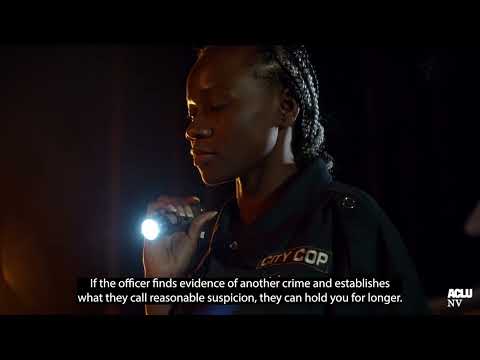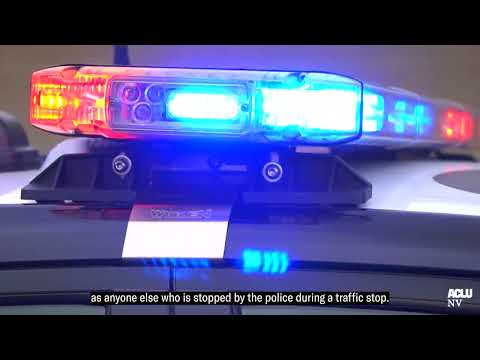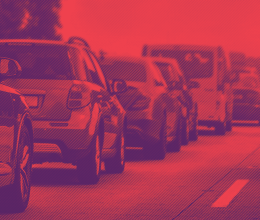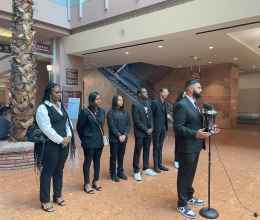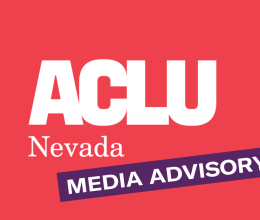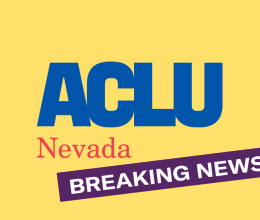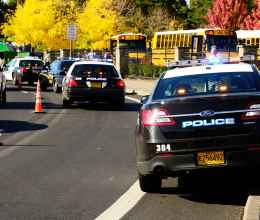Over 20 million Americans are stopped every year for traffic violations, making it one the most common ways that people come into contact with police officers. While traffic stops are meant to make our roadways safer through enforcement of our nation’s traffic codes, officers can use these investigations as a pretext to stop drivers that they suspect have committed other offenses unrelated to the traffic code Police are trained to believe that traffic stops are particularly dangerous for officers, a belief that is not supported by evidence but increases danger to motorists.
We want to anyone stopped for a traffic violation within the United States, and particularly the state of Nevada, to make it through the experience as safely possible and with their rights intact.
What are your goals during a traffic stop?
- Safety is the #1 priority.
- Protecting your rights.
- Documenting police misconduct.
What should I do to stay safe?
- Stay calm.
- If the police order you to do some, follow the order.
- Pull over in a well-lit and well-populated area to ensure witnesses are present
- Do not step out of your car unless told to do so by the police.
- If you need to move inside your car, move calmly and slowly and clearly tell the officer what you are doing before you move.
- Do not lie to a police officer or provide false paperwork – you could be charged with a criminal offense.
What do I do when pulled over?
- Stop your car quickly.
- Turn on your overhead light.
- Crack your driver side window so that you will be able to talk to the officer.
- Keep your hands on the steering wheel until the officer tells you to move.
What are my rights if I am a driver?
- You must provide your driver’s license, proof of insurance, and registration.
- If an officer asks if they may search your car, you can (and should) politely say no. You are not required to consent to search of your car.
- You have a right to remain silent, but you must say to the officer “I am invoking my right to remain silent” to do so.
- You may ask the officer why you were stopped, but an officer is not required to provide an explanation.
- If you are not sure why you have been stopped, you may ask if you are free to leave. If the officer says yes, you should leave.
- Unless the officer has actual evidence of another crime, a traffic stop may only last as long as necessary to investigate the traffic stop. This is typically limited to:
- Running your name for warrants;
- Making sure that the license is valid;
- Running the insurance and registration of the car;
- Writing a citation for the traffic violation.
- If you believe your rights have been violated, you should still comply with orders from officers for your own safety.
- If you are placed under arrest, ask for a lawyer immediately.
What are my rights if I am a passenger in a car?
- You have the same rights as the driver with the exception that unless the police officer has reasonable suspicion that you have committed a criminal offense, you are not required to provide any form of identification to the officer.
Do I still have rights if I am immigrant?
- Yes, you have the same protections as anyone else who is stopped by the police.
- You are not required to answer any questions about your immigration status.
- If you are not a U.S. citizen and an immigration agent requests your immigration papers, you must show them if you have them with you.
- If you are over 18, carry your immigration documents with you at all times.
- If you do not have immigration papers, say you want to remain silent.
- Do not lie or provide false paperwork.
What else can I do to protect myself if my rights are violated?
- As soon as the stop is over, write down everything you can remember.
- Important information may include:
- Time and date of the stop;
- Where the stop occurred;
- The names of the police officer(s) that stopped you;
- The identification number of the officer(s) (if they are wearing badges, it may be on the badge itself);
- Make/model of the police vehicle(s)
- License plate numbers of the police vehicle(s)
- Identification numbers of the police vehicle(s)
- What agency the officer(s) work for (this may be on the sides of their cars or on their badges);
- What you observe at the time of the stop;
- Any citation they may issue.
- What do I do once I have this information?
- You can request records from you stop pursuant to Nevada’s Public Request Act.
- How to request a record is typically on the police department website.
- You can request records from you stop pursuant to Nevada’s Public Request Act.
- If your rights have been violated, you can submit a complaint with the ACLU of Nevada for legal representation or other ideas on how you can proceed.
